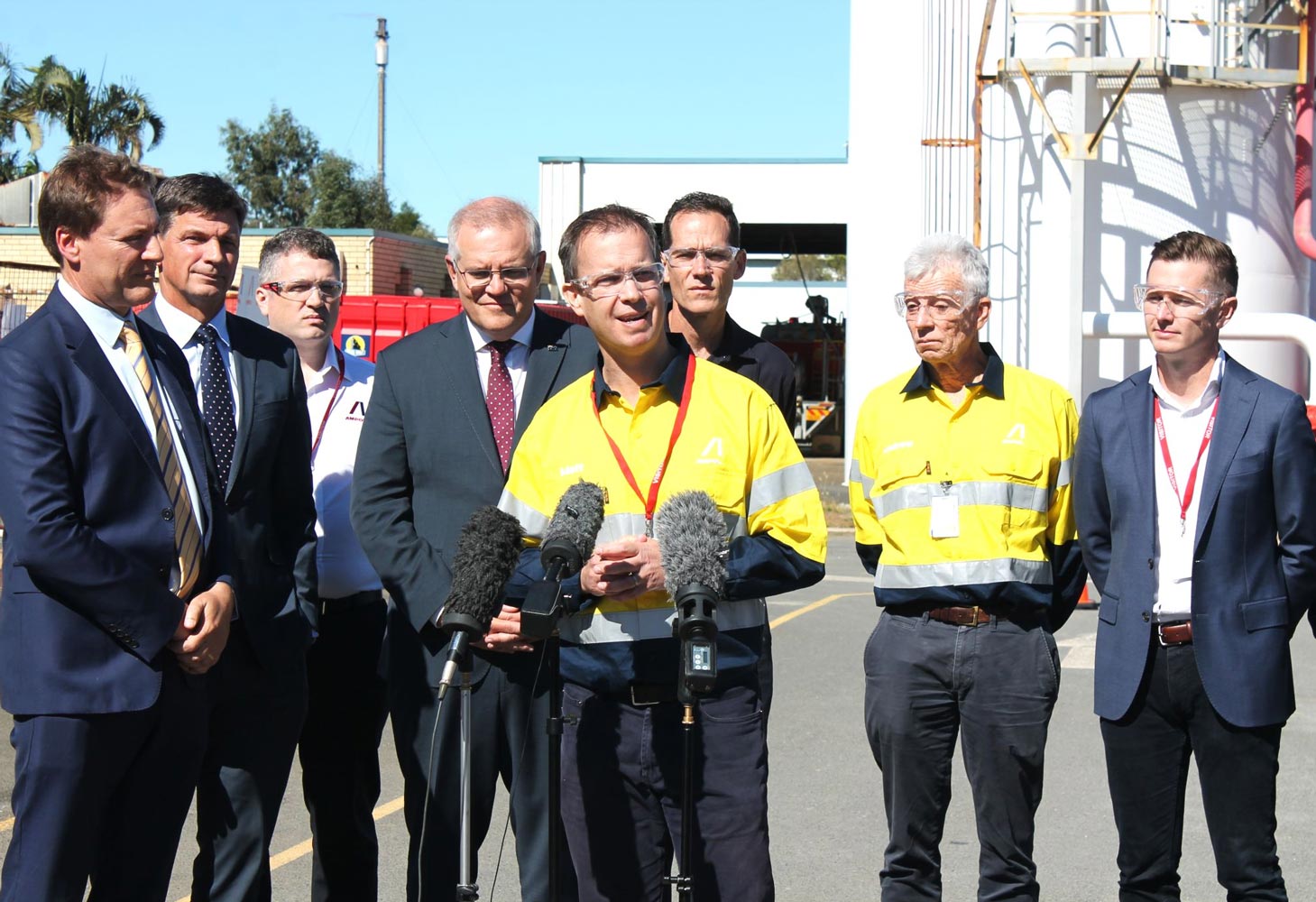
Ampol and Viva Energy to keep oil refineries running till 2027
Ampol Limited, formerly known as Caltex Australia, and Viva Energy Australia have reached an agreement to keep their respective oil refineries operating until at least 2027, with financial support from Australia’s Federal Government.
Last year, Viva Energy Australia announced that it would transform the 120,000 barrel-per-day oil refinery, which supplies more than 50% of Victoria’s and 10% of Australia’s fuel, will be converted into an import terminal and an energy hub. The 66-year-old oil refinery was purchased by Geneva-based Vitol from Shell Australia in August 2014. The sale also included Shell’s 870-site retail business, bulk fuels, bitumen, chemicals and part of its lubricants businesses in Australia. Vitol operates these assets as Viva Energy in Australia.
The long-term Fuel Security Package (FSP), which is still subject to the finalisation and approval, consists of three main elements: A Fuel Security Services Payment (FSSP), the introduction of industry minimum stockholding obligations (MSO), and capital contributions towards refinery upgrades to allow the production of ultra-low sulphur gasoline (LSG), together with bringing forward of the LSG specifications to the end of 2024.
As part of the package, Viva Energy would make a six-year commitment to maintain refining operations through to 30 June 2027, with a further three-year option for the company to extend until 30 June 2030.
“Today’s announcement by the Federal Government provides important and welcome structural support to the refining sector in Australia. The sector has faced several structural headwinds in recent years from challenged trading conditions globally, increased competition from Asian refinery imports, and the significant impacts of demand destruction from the COVID-19 pandemic in 2020. This has seen the number of refineries in Australia reduce from six in 2011, to only two continuing refineries today, leaving the country predominantly reliant on product imports from international refineries for our fuel requirements. We thank Minister Taylor for working closely with the sector to secure and maintain our remaining refinery capacity through this package,” said Viva Energy CEO and Managing Director Scott Wyatt.
“Refineries provide a critical role in energy security to this country, through their crude conversion capability and substantial inventory positions. In FY2020, our Geelong operations had a cash-loss of over AUD200 million (USD155.6 million), and without the support of the Federal Government continued operations would have not been sustainable. This could have seen the loss of over 700 direct jobs, the loss of the last major manufacturing operations in Geelong, and a significant contributor to the Victorian economy.
“Critically, the structure of the FSP allows us to commit to the necessary and significant capital program through the package’s life cycle. The structure of the FSSP is not designed to underpin or support profits of Geelong, but rather to mitigate some of the downside risk of low refining margin cycles, to which Australian refineries are exposed outside of their control. Reducing this risk allows us to proceed with greater confidence, as we seek to invest in the future of the Geelong site.
“This confidence supports our vision for the Geelong Energy Hub, to transition the refining site to multiple sources of energy, as we participate in the longer-term goal of energy transition to a lower carbon economy. Coupled with this is a commitment to improved fuel standards, through the advancement of ultra-LSG fuel specifications, and working towards further harmonisation to Euro 6 vehicle emission standards.
Likewise, Ampol Managing Director and CEO, Matt Halliday, announced Ampol’s decision to keep the Lytton oil refinery operational for the medium-term with Federal Government, and potentially support from the Queensland State Government as well. He said “constructive discussions” are still ongoing with the state government.
“We are pleased that the governments have recognised the challenges faced by the local refining industry which includes competition from large-scale international refineries and the impacts of COVID-19. Under the proposed government support initiatives, we expect Lytton to generate an appropriate return on capital through the cycle which will allow for continued investment to deliver both cost competitive and ultra-low sulfur fuels, whilst also investing in future energy initiatives at the site,” Halliday said.
“Ampol is an Australian company with a long and proud history and has been refining at Lytton since 1965. Our operations play an important role in the economy and in delivering national prosperity, and consistent with this, our discussions with the government have been open and productive throughout our review.”
Although Ampol intends to commit to refining until at least mid-2027, under the legislation, Ampol retains flexibility to withdraw from the package and pursue an earlier conversion to an import terminal in the case of persistently low refinery margins, or other materially adverse events including changes to the Fuel Security Services Payment (FSSP) by future governments, the company said.
Ampol said it also expects to be entitled to receive the one-off short-term refining support payments which were announced by the Federal Government in September 2020, which should be in the order of ~AUD40 million (USD31.1 million) for production in the first half of 2021.
In addition to the proposed FSSP and MSO benefits, the Federal Government will provide a grant of up to AUD125 million (USD97.2 million) to the Lytton oil refinery, to undertake infrastructure upgrades to produce ultra-low sulfur petrol in accordance with fuel quality standard changes by the end of 2024. Ampol expects this support initiative will cover approximately half of the required investment at Lytton to produce ultra-low sulfur petrol.
The Federal government is also considering a pathway towards Euro 6 equivalent standards in Australia, and has proposed potential for both capital to support required aromatics upgrades at Lytton and further support under the FSSP in this event.
Total amount of Federal Government support to keep these two oil refineries operating up to 2030 is around AUD2.3 billion (USD1.8 billion).














